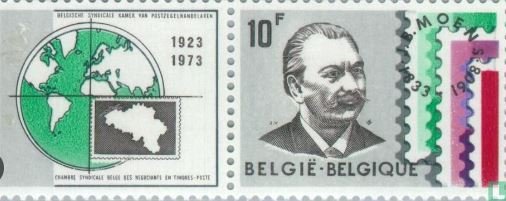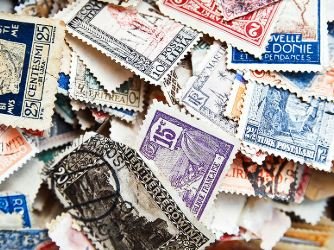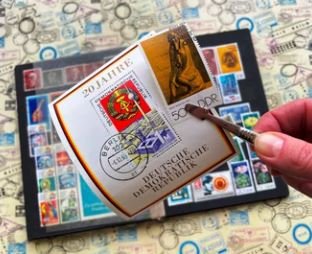Stamp collecting is a rewarding hobby, and for serious collectors, building strong relationships with reputable stamp dealers is crucial. How to build relationships with stamp dealers is a question that many collectors ask, especially those looking to expand their collections while avoiding fraudulent practices. Whether you’re a seasoned philatelist or a beginner, knowing how to foster trust with stamp dealers can lead to better deals, access to rare stamps, and a more enjoyable collecting experience.
However, it’s just as important to learn how to steer clear of scams that can harm your collection and investment. In this article, we’ll explore practical tips on how to build relationships with stamp dealers, ways to establish trust, and methods to avoid potential pitfalls.

1. Do Your Research: The First Step in Building Trust with Stamp Dealers
The foundation of any strong relationship is knowledge. How to build relationships with stamp dealers begins with conducting thorough research. Before engaging with a dealer, it’s essential to familiarize yourself with the stamp market, learn about the types of stamps you are interested in, and identify credible sources.
Tips for Building Trust:
- Check Reputation: Look for dealers who have a solid reputation in the philatelic community. Online reviews, industry associations, and forums dedicated to stamp collecting can provide valuable insights into the trustworthiness of a dealer.
- Ask for References: Don’t hesitate to ask dealers for references from past customers. A reliable stamp dealer will be happy to provide contacts or testimonials that demonstrate their integrity and professionalism.
Pitfalls to Avoid:
- Relying on a Single Source: Avoid making decisions based solely on one recommendation or a single source. Even well-meaning collectors can unknowingly suggest unreliable dealers. How to build relationships with stamp dealers involves ensuring that the dealer’s reputation is backed by multiple, credible sources.
- Ignoring Red Flags: If a dealer hesitates or refuses to provide references or documentation about their stamps, this is a major red flag. Steer clear of dealers who don’t want to be transparent.
2. Establish Clear Communication: Building a Strong Foundation of Trust
Effective communication is crucial when learning how to build relationships with stamp dealers. By openly discussing your collecting interests, budget, and goals, you can set the groundwork for a strong, mutually beneficial relationship. Good communication helps ensure both parties are aligned in their expectations, making the transaction process smoother and more transparent.
Tips for Building Trust:
- Be Clear About Your Interests: Clearly articulate what you’re looking for, whether it’s a specific stamp, a collection of stamps from a particular country, or stamps from a certain time period. This clarity allows the dealer to cater to your needs and gives you a chance to evaluate their knowledge and experience.
- Establish Expectations Early On: Set clear expectations around price ranges, delivery timelines, and return policies. A reputable dealer will be transparent about these details.
Pitfalls to Avoid:
- Assuming the Dealer Knows What You Want: Don’t assume that the dealer knows exactly what you’re looking for without explaining your preferences. How to build relationships with stamp dealers is about creating an open line of communication. Without it, the dealer might offer stamps that don’t meet your needs or expectations.
- Being Overly Impulsive: It’s important to take time to reflect on your purchase decisions. Avoid making hasty purchases without fully discussing the terms or evaluating the value of the stamps you’re interested in.
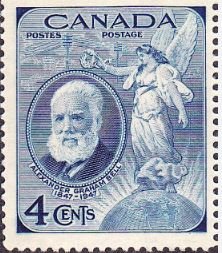
3. Buy from Trusted Dealers with Verifiable Credentials
In the world of stamp collecting, there are unfortunately several unscrupulous dealers who may try to take advantage of inexperienced buyers. One of the most important aspects of how to build relationships with stamp dealers is ensuring that the dealer you work with is properly accredited and recognized by reputable organizations in the philatelic community.
Tips for Building Trust:
- Check Credentials and Memberships: Reputable stamp dealers should be members of recognized philatelic organizations, such as the American Philatelic Society (APS) or the International Federation of Philately (FIP). These memberships ensure that the dealer follows ethical business practices and adheres to industry standards.
- Request Certification of Authenticity: For high-value stamps, always ask for certificates of authenticity, which provide assurance that the stamps are genuine and not counterfeit or altered.
Pitfalls to Avoid:
- Buying from Unaccredited Dealers: Avoid buying from dealers who are not affiliated with established philatelic organizations. Without proper credentials, you have no guarantee of the dealer’s legitimacy or the authenticity of their stamps.
- Overlooking Documentation: Never skip the step of verifying a stamp’s authenticity, especially for rare or expensive items. Relying on verbal assurances without written documentation can lead to costly mistakes.
4. Leverage Personal Relationships: How to Build a Lasting Connection
Building a personal connection with a dealer is one of the most effective ways of learning how to build relationships with stamp dealers. Dealers who know you as a regular and serious collector will be more likely to offer you access to rare stamps, provide you with insider information, and offer discounts or special deals.
Tips for Building Trust:
- Be Patient and Respectful: Developing a personal relationship takes time. Be patient, respectful, and honest with the dealer, and they will likely return the favor. Regular communication and visits to the dealer’s shop (if possible) can help you build a lasting rapport.
- Express Your Interest in Long-Term Collecting: Show the dealer that you are a committed collector, not just someone looking for a one-time transaction. Dealers often value long-term relationships with collectors and will be more inclined to offer special deals or advanced notice about new arrivals.
Pitfalls to Avoid:
- Focusing Only on One Deal: How to build relationships with stamp dealers is not about one-off transactions. If you approach the dealer with a “one-time purchase” mindset, you may miss out on the opportunity to establish a deeper, more fruitful relationship.
- Being Overly Demanding: While it’s important to express your interest and passion for stamp collecting, it’s equally important to avoid being overly demanding. Respect the dealer’s expertise and time, and they will be more inclined to offer you better deals and insights.
5. Stay Informed: Keep Learning About Stamps and the Market
One of the best ways to build trust with a stamp dealer is by staying well-informed about the market. How to build relationships with stamp dealers includes becoming a knowledgeable collector who understands stamp values, trends, and potential pitfalls.
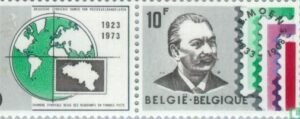
Tips for Building Trust:
- Keep Up with Market Trends: Subscribe to philatelic magazines, attend stamp exhibitions, and participate in online forums. The more you know about the stamp market, the better equipped you’ll be to have informed discussions with dealers.
- Ask the Right Questions: When you interact with a dealer, ask thoughtful questions about the stamps you’re interested in. A knowledgeable dealer will appreciate your expertise and will likely be more willing to work with you on pricing or sourcing rare items.
Pitfalls to Avoid:
- Buying Without Proper Knowledge: Avoid purchasing stamps without fully understanding their value or market demand. A dealer will take advantage of a buyer who doesn’t have a solid grasp of what they’re buying.
- Ignoring Market Trends: Failing to stay informed about changes in stamp values and collecting trends can make you vulnerable to being overcharged or purchasing stamps that don’t hold long-term value.
6. Be Aware of Scams: How to Protect Yourself from Fraudulent Dealers
Unfortunately, the stamp industry is not immune to fraud. One of the most important aspects of how to build relationships with stamp dealers is understanding how to protect yourself from scams. While most dealers are reputable, there are a few bad actors who might try to deceive collectors.
Tips for Building Trust:
- Verify the Authenticity of Rare Stamps: Always insist on seeing certification for rare or high-value stamps. If a dealer refuses to provide proof of authenticity or doesn’t have the necessary documentation, walk away.
- Trust Your Instincts: If something feels off about a transaction—whether it’s the price, the stamp’s provenance, or the dealer’s behavior—it’s better to err on the side of caution. Don’t hesitate to walk away if you feel uncomfortable.
Pitfalls to Avoid:
- Buying Without Verification: Never purchase a stamp, especially a high-value one, without verifying its authenticity and market value. Scams often involve convincing buyers to purchase counterfeit or overvalued stamps.
- Trusting Unclear or Vague Sellers: Be cautious of dealers who are vague about the origins of their stamps, avoid answering your questions, or push you to make decisions too quickly.
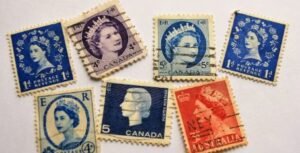
Conclusion
How to build relationships with stamp dealers is a journey that requires patience, knowledge, and careful attention. By following the tips outlined in this article—such as doing your research, establishing clear communication, verifying credentials, and avoiding scams—you can create meaningful and lasting connections with reputable dealers. A strong relationship with a trusted dealer not only enhances your stamp collection but also ensures that you avoid costly mistakes and fraud.
As you continue to build your collection, remember that trust is earned over time. Approach each dealer with a blend of respect, curiosity, and caution, and you’ll find that your collecting experience becomes more rewarding and fulfilling.

